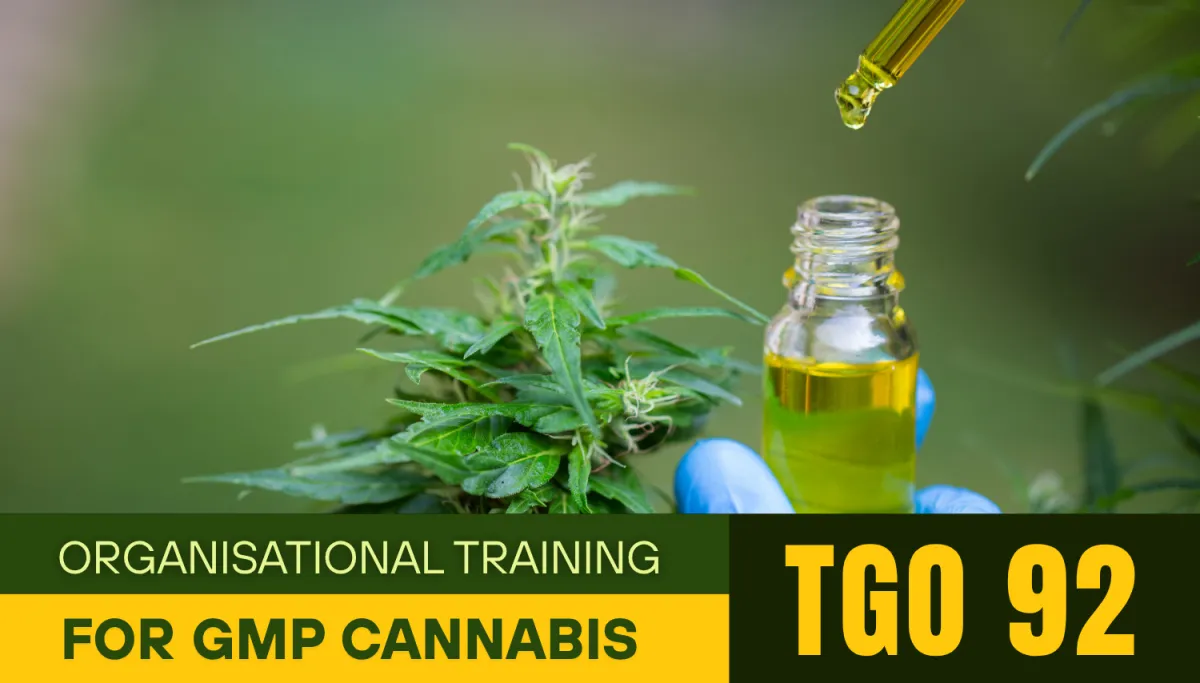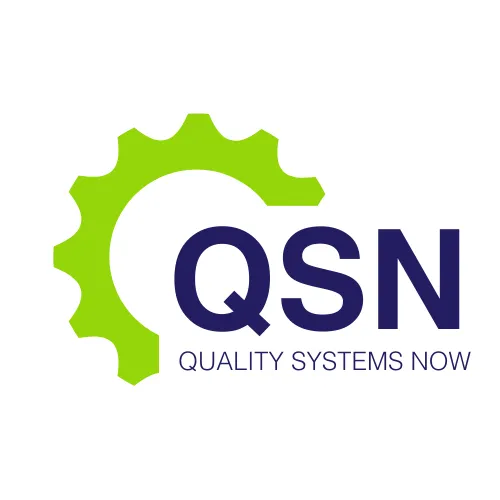NEWS

Organisational Training for GMP Cannabis – TGO 93
The rapid expansion of the medicinal cannabis sector in Australia has prompted stringent regulatory oversight to ensure the safety, efficacy, and quality of cannabis-based therapeutic goods. One of the cornerstone regulatory requirements is the Therapeutic Goods Order No. 93 (TGO 93), issued by the Therapeutic Goods Administration (TGA). TGO 93 defines the minimum quality standard for medicinal cannabis products supplied in Australia. Compliance with TGO 93 is mandatory and operates alongside the requirement for manufacturing under Good Manufacturing Practice (GMP).
This article, prepared by QSN Academy provides a comprehensive overview of GMP compliance for medicinal cannabis under the framework of TGO 93. It explores the scientific and regulatory rationale behind the standard, discusses critical elements of quality control, and offers insight into implementing robust systems that meet TGA expectations.
Regulatory Context: Medicinal Cannabis in Australia
The legal framework governing medicinal cannabis in Australia is complex and multifaceted. It is primarily regulated under the Narcotic Drugs Act 1967, the Therapeutic Goods Act 1989, and the Customs Act 1901. The cultivation, production, and manufacture of medicinal cannabis products are overseen by the Office of Drug Control (ODC) and the TGA.
All cannabis-based medicines supplied to patients must meet the TGA’s quality standards, and unregistered cannabis products accessed through the Special Access Scheme (SAS) or Authorised Prescriber Scheme must also comply with TGO 93. For products listed or registered on the Australian Register of Therapeutic Goods (ARTG), additional GMP and clinical requirements apply.
What Is TGO 93?
Therapeutic Goods Order No. 93 (TGO 93) sets out the minimum quality requirements for medicinal cannabis products. It came into effect in 2017 and applies to cannabis products that contain, or are intended to contain, cannabinoids as active ingredients. TGO 93 ensures that all such products—regardless of the route of supply—are free from unacceptable levels of contaminants and are appropriately standardised.
TGO 93 applies to raw materials, bulk products, and finished medicinal cannabis preparations, including oils, capsules, sprays, and dried flowers. The standard must be read in conjunction with the overarching requirements of GMP, as enforced by the TGA’s Manufacturing Quality Branch.
Key Requirements of TGO 93
Identity and Content of Active Ingredients
Medicinal cannabis products must be tested for their cannabinoid content and must declare the concentration of principal cannabinoids such as delta-9-tetrahydrocannabinol (THC), cannabidiol (CBD), and any others present above a specified threshold. TGO 93 requires:
Identification of each cannabinoid present in amounts ≥1.0% of the total cannabinoid content.
Quantification of THC and CBD with acceptable limits of variance.
Use of validated, GMP-compliant analytical methods such as HPLC with ultraviolet detection.
Microbial Contamination Limits
Medicinal cannabis products, especially those inhaled or ingested, must be free from harmful microorganisms. TGO 93 outlines specific limits for:
Total aerobic microbial count (TAMC)
Total yeast and mould count (TYMC)
Absence of specified pathogens (e.g., E. coli, Salmonella spp., Pseudomonas aeruginosa)
Manufacturers must implement validated sterilisation or decontamination processes and maintain GMP-compliant environmental controls.
Residual Solvents and Pesticide Residues
Due to the nature of extraction and cultivation, cannabis products may contain residues from solvents and pesticides. TGO 93 requires testing for:
Residual solvents within ICH Q3C limits.
Pesticides within the limits set by the APVMA or international equivalents (e.g., USP or Ph. Eur.).
Cannabis producers must maintain traceability of all agricultural and processing inputs and provide Certificates of Analysis (CoAs) confirming compliance.
Heavy Metals and Other Contaminants
TGO 93 mandates control of heavy metals such as lead, arsenic, cadmium, and mercury. Testing must be carried out using sensitive and validated techniques such as inductively coupled plasma mass spectrometry (ICP-MS).
Other potential contaminants include mycotoxins, aflatoxins, and foreign matter, all of which must be monitored and controlled under a product’s specifications.
Stability and Storage Requirements
Stability testing is required to demonstrate that the medicinal cannabis product retains its quality throughout its shelf life. This includes maintaining consistent cannabinoid concentration, absence of microbial growth, and physical integrity under defined storage conditions. Stability programs must be designed in line with ICH Q1A guidelines.
GMP and TGO 93 – A Symbiotic Relationship
GMP and TGO 93 are not separate entities; they are interdependent. GMP provides the framework for consistent production and control, while TGO 93 defines the specific quality benchmarks that cannabis products must meet. Together, they ensure product integrity, patient safety, and regulatory compliance.
Key GMP systems supporting TGO 93 compliance include:
Quality Management Systems (QMS): The QMS must encompass the product lifecycle, including specification setting, validation, and change control.
Documentation and Recordkeeping: All testing results, manufacturing activities, and quality decisions must be fully documented and traceable.
Quality Control Laboratories: Laboratories must be equipped with validated instruments and procedures for accurate cannabinoid analysis and contaminant testing.
Supplier Qualification: All raw materials, including cannabis biomass and excipients, must be sourced from qualified suppliers with evidence of compliance to agricultural and chemical standards.
Analytical Testing and Method Validation
Analytical testing under TGO 93 requires the use of validated methods that are scientifically justified and suitable for their intended purpose. Validation parameters should include:
Specificity
Accuracy
Precision
Linearity
Limit of Detection (LOD) and Limit of Quantification (LOQ)
Robustness
Laboratories must comply with GMP and, ideally, ISO/IEC 17025 standards. Reference standards and internal controls must be used to ensure accuracy and reproducibility.
Common Challenges in TGO 93 Compliance
Despite its clear framework, TGO 93 compliance poses several challenges for manufacturers and testing laboratories:
Variability in plant material affects batch-to-batch consistency.
Extraction processes may introduce solvents or degrade cannabinoids.
Cross-contamination risks from shared facilities or equipment must be addressed through validated cleaning procedures.
Stability of cannabinoids is influenced by light, temperature, and oxygen, requiring robust formulation and packaging design.
Addressing these challenges requires multidisciplinary expertise in pharmaceutical manufacturing, analytical chemistry, botany, and regulatory affairs.
QSN Academy’s Support for TGO 93 Compliance
QSN Academy provides expert training, mentorship, and consulting to organisations operating in the medicinal cannabis space. Our services include:
Development and validation of TGO 93-compliant specifications and test methods.
GMP training programs tailored for cannabis cultivation and manufacturing.
Support with TGA licensing applications and audit readiness.
Guidance on quality systems development, including QMS, CAPA, and deviation handling.
Our scientific and regulatory professionals ensure that your organisation can meet both the letter and the spirit of TGO 93 and GMP.
Conclusion
TGO 93 is a critical quality standard that safeguards the therapeutic use of cannabis-based products in Australia. It works in tandem with GMP requirements to ensure products are free from contaminants, standardised in cannabinoid content, and manufactured consistently. For manufacturers and laboratories, compliance with TGO 93 is both a regulatory requirement and a scientific imperative.
As the medicinal cannabis sector evolves, maintaining quality and compliance will be essential for patient safety and market credibility. Through structured GMP systems, validated testing methods, and ongoing staff development, organisations can not only meet TGO 93 but exceed it—positioning themselves as leaders in pharmaceutical-grade cannabis production.
QSN Academy remains committed to supporting the industry through scientifically grounded, regulatorily aligned education and consultation.
